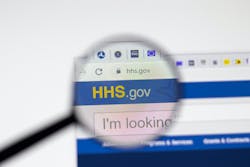The U.S. Department of Health and Human Services has issued a “call to action” to encourage stakeholders to develop and participate in “community care hubs” that allow for an efficient, scalable approach to partnerships between healthcare providers and community-based organizations (CBOs) to facilitate care coordination to address health-related social needs.
According to an HHS report, these hubs can coordinate administrative functions and funding for a network of CBOs. They allow healthcare organizations to efficiently contract with multiple CBOs in a streamlined way through a single point of contact and ensure the quality of services delivered across the network. The hubs are skilled at braiding and blending various funding sources to address the full scope of an individual’s social needs. HHS says hubs also provide smaller CBOs with the support and infrastructure necessary to deliver services in partnership with the health care sector as a part of a larger CBO network.
CBOs with expert knowledge of social care services and experience working with healthcare organizations are ideally suited to serve as hubs, according to HHS.
In 2022, the federal Administration for Community Living announced plans to launch a national learning community of these hubs to share best practices.
Speaking at the 2002 NAACOS fall conference, Kelly Cronin, deputy administrator, innovation and partnership at HHS’ Administration for Community Living, explained the increasing importance of these hubs.
She said that as ACOs are managing total cost of care, they are going to be highly motivated to figure out holistic models that involve community-based organizations. “What we have recognized is you can't necessarily do that by contracting for 20,000 CBOs; that's just not tenable,” Cronin said. “We want to make it easier to work with CBO networks. When we think about Medicaid and Medicare Advantage contracts, often their footprints go beyond a state. We need to have the flexibility to expand CBO networks to meet the geographic footprints of the healthcare partners. We need to be able to be flexible and have lead organizations be able to step up and say, ‘Okay, I can manage these contracts at these different levels and eventually assume risk.’”
In one example of this type of work, the ACL selected Bay Aging to lead the development of a statewide Community Integrated Health Network for Virginia. The two-year project began in September 2021 and is funded by a No Wrong Door Community Infrastructure grant. Also speaking at the NAACOS conference was Kathy Vesley, president and CEO of Bay Aging.
“Our model is a statewide model,” Vesley stressed. “We have 25 Area Agencies on Aging in Virginia and we are one of them. Most of the other 24 sister agencies are bigger, stronger, and doing more. But we really wanted to get involved in healthcare. We really could see the needs are in the communities and how we could help the health systems, and so then we decided to build it out statewide with managed care coming into Virginia.”
HHS said that primary care clinicians, specialists, and behavioral health clinicians, should consider screening for HRSNs and partner with hubs, CBOs, and public and environmental health entities to perform a more comprehensive assessment and help meet the needs that are identified.
Many hospitals report that they currently collect data on patients’ HRSNs. “Beginning in 2024, hospitals participating in the Inpatient Quality Reporting Program must report Screening for Social Drivers of Health and Hospital Commitment to Health Equity quality measures. Dialysis centers and inpatient psychiatric hospitals will also have to report SDOH quality measures, and post-acute care providers will collect SDOH information through assessment instruments. Under the calendar year 2024 Physician Fee Schedule final rule, Medicare will separately pay for SDOH risk assessments, which identify unmet social needs that may affect the diagnosis and treatment of medical problems, starting January 1, 2024, the report says.
HHS has recommendations for other parts of the healthcare ecosystem. Payers, it suggests, should consider covering and paying for allowable services. CMS is doing so by providing regulations and guidance for Medicare Advantage plans, traditional Medicare, and Medicaid flexibilities (including state plan amendments, section 1115 demonstration authority, 1915(c) home and community-based services waivers, and managed care contracting — including In-Lieu of Services and Settings [ILOS]).
Medicare Advantage organizations, including Special Needs Plans, may use their authority to provide special supplemental benefits for the chronically ill to partner with CBOs and address unmet HRSNs for certain chronically ill beneficiaries.
Noting that public health agencies have long supported SDOH activities in their jurisdiction, including conducting community health assessments, HHS recommends that public health forge relationships with backbone organizations, such as hubs, to ensure public health capacity and vision as well as programs (i.e., community health workers, screening programs, vaccine and STI programs) are incorporated into the social care delivery infrastructure and determine where intersections exist. Or they can act as a hub themselves.


